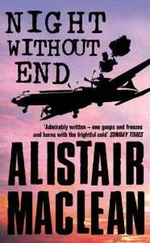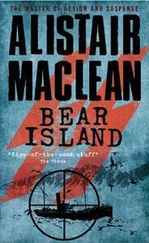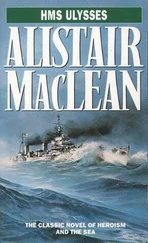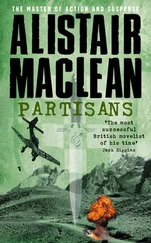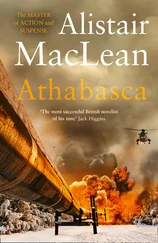Alistair MacLean - Breakheart Pass
Здесь есть возможность читать онлайн «Alistair MacLean - Breakheart Pass» — ознакомительный отрывок электронной книги совершенно бесплатно, а после прочтения отрывка купить полную версию. В некоторых случаях можно слушать аудио, скачать через торрент в формате fb2 и присутствует краткое содержание. Жанр: Старинная литература, на английском языке. Описание произведения, (предисловие) а так же отзывы посетителей доступны на портале библиотеки ЛибКат.
- Название:Breakheart Pass
- Автор:
- Жанр:
- Год:неизвестен
- ISBN:нет данных
- Рейтинг книги:5 / 5. Голосов: 1
-
Избранное:Добавить в избранное
- Отзывы:
-
Ваша оценка:
- 100
- 1
- 2
- 3
- 4
- 5
Breakheart Pass: краткое содержание, описание и аннотация
Предлагаем к чтению аннотацию, описание, краткое содержание или предисловие (зависит от того, что написал сам автор книги «Breakheart Pass»). Если вы не нашли необходимую информацию о книге — напишите в комментариях, мы постараемся отыскать её.
Breakheart Pass — читать онлайн ознакомительный отрывок
Ниже представлен текст книги, разбитый по страницам. Система сохранения места последней прочитанной страницы, позволяет с удобством читать онлайн бесплатно книгу «Breakheart Pass», без необходимости каждый раз заново искать на чём Вы остановились. Поставьте закладку, и сможете в любой момент перейти на страницу, на которой закончили чтение.
Интервал:
Закладка:
'Yes, yes. I'll detail a loading party. And –?'
'I'm pretty well bushed, sir. And this business of Jackson … If Devlin – that's the brakeman – could relieve me in a couple of hours–'
'That shall be arranged.'
A soldier in a peaked cavalryman's cap peered out from the side of the locomotive through the now heavily falling snow. He said to Banlon: 'I think this must be the fuel dump coming up.'
Banlon joined them, nodded, returned to the controls and brought the train to a gentle stop, so positioning it that it brought up with locomotive and tender precisely opposite the fuel dump, an open-faced, three-sided shack piled high with cordwood. Banlon said: 'Fetch the loading detail, would you?'
The loading detail, about a dozen men in all, were on the scene in only a matter of seconds and a remarkably unhappy band of troopers they appeared to be. One had the impression that, given the option, they'd have taken on twice their number of hostile Indians rather than the chore on hand and their reluctance for the appointed task was wholly understandable: although it was now approaching noon, the sky was so dark and the now wind-whipped snow so heavy that the light was no better than that of late dusk and visibility no more than a few feet; and the cold was deepening with the passing of every moment. The soldiers, shivering with cold and stamping their feet, lined up with their backs to the developing blizzard and passed the cordwood arm to arm between the fuel store and the tender. And they moved very quickly indeed: no one had to tell them that the sooner they had finished, the sooner they were back in the comparative warmth of their coaches.
Some way back on the other side of the train. an indistinct figure moved quickly and silently along the track-side and climbed silently on to the platform at the front of the supply wagon. The door was locked. The man, wearing an army overcoat and a peaked cavalryman's cap, stooped, examined the lock, produced a heavy bunch of keys, selected one and inserted it. The door opened at once, and closed almost immediately as the man entered.
A match scratched, flared and a small oil-lamp came to life. Deakin brushed snow from his greatcoat – O'Brien had provided him with some protection against the elements – moved towards the centre of the wagon and looked around him.
To the rear of the coach, packed four deep and two wide in obviously makeshift racks on either side of the central aisle, were exactly thirty-two coffins, all of them identical in shape and size: whoever made coffins for the army apparently visualized all cavalrymen as being exactly the same shape, size and weight. Most of the rest of the wagon was given up to supplies of one kind and another. The right-hand side was given up to neatly stored piles of bagged and crated food supplies. All the left-hand side was stacked with brass-bound oiled wooden boxes, which took up a relatively small space, and unidentified objects lashed down under tarpaulins. The wooden boxes bore the legend: MEDICAL CORPS SUPPLIES: UNITED STATES ARMY. Deakin lifted a corner of the first tarpaulin. The boxes there, also oiled wood, bore the marking, in large red letters: DANGER! DANGER! DANGER! The next few tarpaulins covered boxes similarly marked. The last and smallest tarpaulin to be lifted revealed a tall narrow grey box with a leather carrying handle. It was marked: US ARMY POSTS & TELEGRAPHS.
Deakin lifted off the tarpaulin covering this box, rolled it, thrust it under his coat, picked up the grey box, doused the lamp and left, locking the door behind him. Even during the brief time he had been inside the supply wagon the visibility had become appreciably worse. It was as well, Deakin reflected, that they had the security of the railway lines to guide them on their way: in such weather, a horse and rider, or horses and coaches, would, like as not, have ended up in the depths of the ravine.
Lugging the heavy transmitter and now making little attempt at concealment, Deakin hurried along the length of the supply wagon and climbed up the front platform of the leading horse wagon. The door was unlocked. He passed inside, closed the door, lowered the transmitter, located and lit an oil-lamp.
Nearly all the horses were standing, the majority of them chewing mournfully on the hay from the managers bolted to the side of the wagon. They had little enough room to move in their individual stalls but seemed unconcerned about it. Nor did they show much concern for Deakin's presence. Such few as bothered to acknowledge his presence looked at him incuriously, then as idly turned their heads away.
Deakin paid no attention to the horses. He was much more interested in the source of their food supply, a wood-slatted haybox by his right shoulder that reached almost to the roof. He removed the two top slats, climbed on to the top of the hay and burrowed a deep hole at the back, hard against the side of the wagon. He swung down to the floor, wrapped the transmitter in the tarpaulin, carried it to the top of the haybox, buried it deep in the hole and covered it with hay to a depth of almost three feet. Even allowing for the most evil mischance, Deakin reckoned, the transmitter should remain undetected for at least twenty-four hours: and twenty-four hours would be all he would ever want.
He doused the lamp, left and made his way to the rear end of the second coach. He shook out his coat on the platform, went inside, hung the coat on a hook in the passageway outside the officers' sleeping cubicles and made his way forward, sniffing appreciatively as he went. He stopped and looked through an open doorway to his right.
The galley was small but spotless with an array of pots simmering gently on the wood-burning stove. The occupant, when he turned, proved to be a short and very plump Negro most incongruously dressed in a regulation galley uniform, complete even to the chef's tall white hat. He smiled widely at Deakin, teeth white and shining and perfect.
'Morning, sir.'
'Good morning. You must be Carlos, the chef?'
'That's right.' Carlos beamed happily. 'And you must be Mr Deakin, the murderer. Just in time for some coffee, sir.'
Claremont by his side, Banlon stood on the footplate of the locomotive, examining the tender. He turned and leaned out.
'That's the lot. Full. Many thanks.'
Sergeant Bellew raised a hand in acknowledgment, turned and said something to his men, who at once trudged thankfully away in the direction of their coaches, being lost to sight almost at once in the whitely swirling gloom.
Claremont said: 'Ready to roll then, Banlon?'
'Just as soon as this snow-squall clears. Colonel.'
'Of course. You said you wanted the brakeman to relieve you. This would be a good time.'
Banlon said very firmly: 'I did say that, but this would not be a good time, sir. For the next three miles, I want Devlin right where he is.'
'The next three miles?'
'To the top of Hangman's Pass. The steepest climb in all the mountains.'
Claremont nodded. 'A brakeman could have his uses.'
FIVE
Fort Humboldt lay at the head of a narrow and rock-strewn valley which debouched on to a plain to the west. The strategic position of the Fort had been excellently chosen. Behind it, to the north, was a sheer cliff-face: to the east and south it was bounded by a ravine, narrow but very deep, the eastern arm of which was traversed by a trestle railway bridge: the railway line itself passed eastwest in front of the Fort descending slowly down the winding valley into the plain beyond. From the point of view of defence Fort Humboldt could not have been more advantageously located. It could be approached only across the bridge or up the valley; facing in either direction, a small group of determined and well-entrenched men could have easily held off ten times their number.
Читать дальшеИнтервал:
Закладка:
Похожие книги на «Breakheart Pass»
Представляем Вашему вниманию похожие книги на «Breakheart Pass» списком для выбора. Мы отобрали схожую по названию и смыслу литературу в надежде предоставить читателям больше вариантов отыскать новые, интересные, ещё непрочитанные произведения.
Обсуждение, отзывы о книге «Breakheart Pass» и просто собственные мнения читателей. Оставьте ваши комментарии, напишите, что Вы думаете о произведении, его смысле или главных героях. Укажите что конкретно понравилось, а что нет, и почему Вы так считаете.

